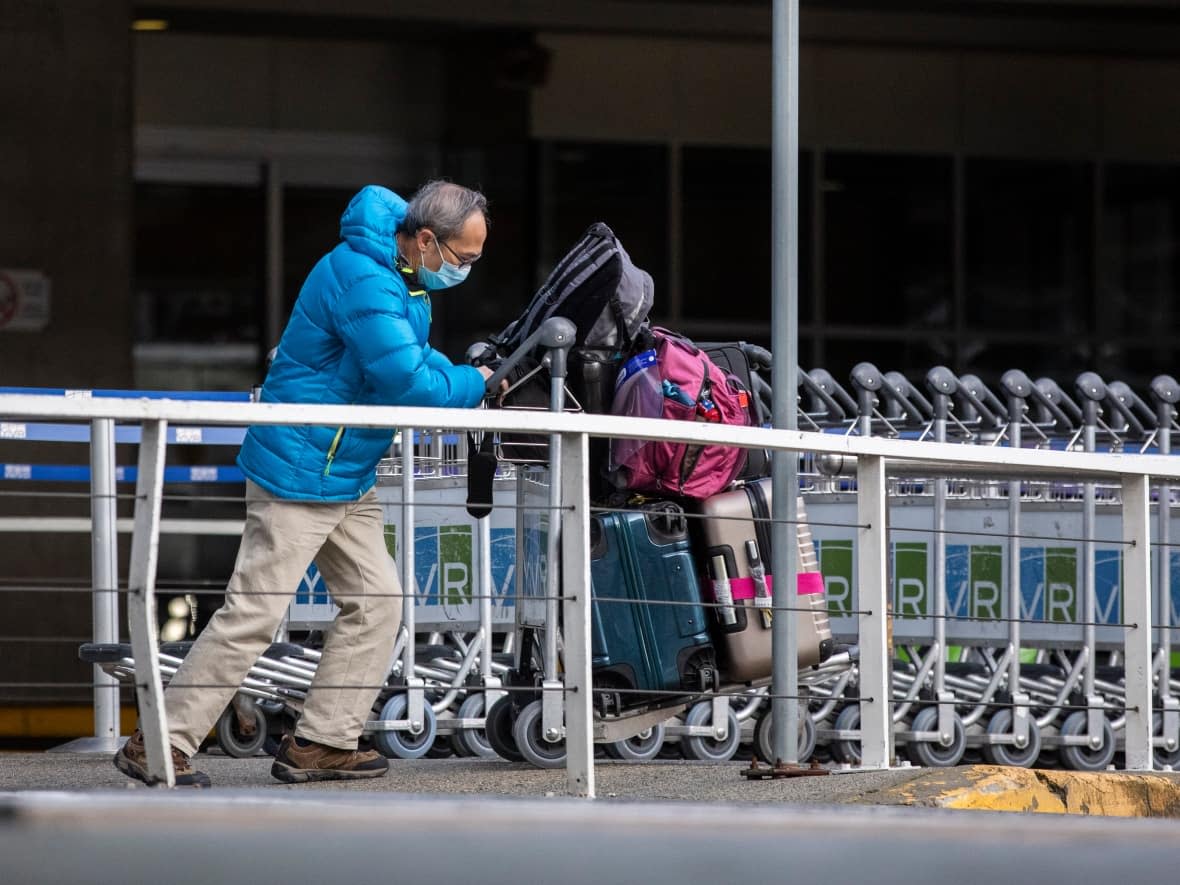B.C. records 946 new cases of COVID-19 and 11 more deaths over 3 days

B.C. health officials announced 946 new cases of COVID-19 and 11 more deaths on Monday.
In a written statement, the provincial government said there are currently 2,876 active cases of people infected with the novel coronavirus in B.C.
A total of 241 people are in hospital, with 89 in intensive care.
The breakdown of new cases is as follows:
351 new cases from Friday to Saturday.
311 new cases from Saturday to Sunday.
284 new cases from Sunday to Monday.
Overall hospitalizations, which typically lag behind spikes and dips in new cases, are down by 20.5 per cent from last Monday, when 303 people were in hospital with the disease and about 45.3 per cent from a month ago when 441 people were in hospital.
The number of patients in intensive care is down by about 22.6 per cent from 115 a week ago and by 31 per cent from last month when 129 people were in the ICU.
The provincial death toll from COVID-19 is now 2,362 lives lost out of 220,530 confirmed cases to date.
Of the 11 deaths reported on Monday:
Five were in Fraser Health.
Four were in Northern Health.
Two were in Interior Health.
The regional breakdown of new cases is as follows:
285 new cases in Fraser Health, which has 927 total active cases.
211 new cases in Interior Health, which has 559 total active cases.
197 new cases in Island Health, which has 624 total active cases.
138 new cases in Vancouver Coastal Health, which has 424 total active cases.
115 new cases in Northern Health, which has 342 total active cases.
There are no new cases among people who reside outside of Canada, a group which has zero total active cases.
There are a total of five active outbreaks in assisted living, long-term, and acute care facilities.
Acute care outbreaks include:
Ridge Meadows Hospital
St. Paul's Hospital
As of Monday, 91.3 per cent of those 12 and older in B.C. have received their first dose of a COVID-19 vaccine, 88.1 per cent a second dose and 11 per cent a third dose.
When taking into account those five and older, 85.5 per cent of people in B.C. had received a first shot of a COVID-19 vaccine and 82 per cent a second dose.
From Nov. 26 to Dec. 2, people who were not fully vaccinated accounted for 58.3 per cent of cases and from Nov. 19, they accounted for 66.1 per cent of hospitalizations, according to the province.
So far, 8.81 million doses of COVID-19 vaccine have been administered, including over four million second doses.
RCMP attends vaccination clinic after protests
Prince George RCMP said they received complaints of protests outside a children's vaccination clinic in Prince George on Monday, and had to remind protestors of a new law that established a buffer zone around vaccination sites.
The law, called the Access to Services COVID-19 Vaccination Act, passed on Nov. 26. It establishes a 20-metre access zones around hospitals, COVID-19 clinics, and K-12 schools. Within access zones, it is an offence to disrupt or impede access to services.
Cpl. Jennifer Cooper from the Prince George RCMP said police are able to arrest protesters "in certain circumstances" or issue a $2,300 fine under the act.
On Monday, she said, they received complaints of protesters outside the Uda Dune Baiyo (House of Ancestors) Lheidli T'enneh conference centre in downtown Prince George. It was the first day that children in Prince George were able to receive their shots.
"Complaints received were of protesters following patrons of the clinic to and from their vehicles," she said, "as well as shouting at the patrons of the clinic what could be considered intimidating anti-vaccine slogans or rhetoric."
Cooper said no arrests were made on Monday, but police educated protesters on the new act and the protesters were receptive. She also said police would be proactive in enforcing the act at vaccine clinics going forward.
Travel rules eased for Canadians stranded in South Africa
Over the weekend, the federal government announced it would adjust newly implemented restrictions on travel from South Africa, allowing Canadians to return home if they have a negative molecular test taken within two days of departure and leave on flights transiting through Frankfurt, Germany, on or before Dec. 13.
The rules still bar non-Canadians from entering Canada if they've travelled through any of the 10 named countries, mostly in southern Africa, over the preceding two weeks.
The rules have been criticized by southern African leaders, who have argued the region is being unfairly singled out, given that omicron cases have been detected in countries around the world.
"We understand the need for nations to protect their citizens. But the World Health Organization has gone ahead to state that travel bans are not necessarily the solution," Lazarus Chakwera, president of Malawi, told CBC's Rosemary Barton on Sunday.
"[The travel ban] looks unfair to us. It looks unscientific and it looks unilateral," he said.


